Attending and directing the conference, on behalf of the Ministry of Education and Training were Minister Nguyen Kim Son; Deputy Minister Le Quan; Director of the Department of Vocational Education and Continuing Education Truong Anh Dung, along with representatives from several departments and divisions under the Ministry. On behalf of Phu Tho province was Mr. Nguyen Khac Hieu – Vice Chairman of the Provincial People's Committee.
The conference also had the participation of representatives of the Department of Education and Training of provinces and cities; businesses and training units in the field of Vocational Education .
Industry determination, local cooperation
In his opening remarks at the conference, Deputy Minister Le Quan affirmed that this is an important event in the context of the sector simultaneously implementing many strategic tasks. The conference takes place at a time when the National Assembly is considering, discussing, and passing many laws of fundamental importance to education, including the amended Law on Vocational Education. This is a great opportunity for the vocational education and continuing education system to make breakthroughs, institutionalize many new policies, overcome limitations, and redefine its role in the national human resource strategy.

The Deputy Minister stated that the demand for human resources in the digital age, given the strong impact of digital technology and artificial intelligence, poses urgent challenges regarding the scale, structure, and quality of training. Vietnam is facing a historic opportunity to break through and successfully achieve its two centenary goals. To do so, education and training in general, and vocational and continuing education in particular, need to be strongly reformed, developing high-quality human resources closely linked to the requirements of socio-economic development and international integration.

Based on that reality, Deputy Minister Le Quan suggested several key issues for delegates to focus on during discussions. These included autonomy and decentralization; interconnectedness throughout the entire education system, from vocational high schools and technical high schools to colleges and universities; and the planning and arrangement of the network of vocational education and continuing education institutions…
On the local side, Mr. Nguyen Khac Hieu – Vice Chairman of the People's Committee of Phu Tho province – emphasized that the conference is not only an opportunity to comprehensively assess the results of vocational education and continuing education nationwide, but also a forum for localities, training institutions, businesses, and experts to share experiences and find new solutions for the next phase.
Providing an overview of the province's potential after the merger, Mr. Nguyen Khac Hieu stated that Phu Tho has an area of 9,361 km², a population of over 4 million people, and ranks 6th in the country in terms of economic scale. Notably, in education, Phu Tho is currently among the top 3 localities with the largest education system nationwide, boasting 4 public universities, 50 vocational training institutions, 1,957 general education and continuing education institutions, and over 1 million students.

Besides the advantages, the leaders of Phu Tho province also frankly pointed out many difficulties and challenges. That is, the facilities and equipment of some vocational schools are still lacking, vocational training associated with job creation is not really sustainable, the connection with businesses is still limited...
In the orientation for the period 2026-2030, Phu Tho thoroughly implements Resolution No. 71-NQ/TW of the Politburo on breakthrough in education and training development, considering the development of high-quality human resources as one of the three strategic breakthroughs of the province. Phu Tho will accompany and effectively implement policies and guidelines for vocational education and continuing education to develop breakthroughly, truly becoming a driving force for sustainable development.
Developing high-quality human resources.
At the conference, Mr. Truong Anh Dung, Director of the Department of Vocational Education and Continuing Education, provided an overview of the entire sector. According to him, by September 2025, the country will have 1,163 vocational education and training institutions, including 518 public and 645 private institutions. In 2024, the vocational education and training system enrolled approximately 2.43 million people, including 430,000 at the college and intermediate levels, and about 2 million at the elementary level and other vocational training programs. In the first six months of 2025, enrollment is expected to reach approximately 1 million people, including 100,000 at the college and intermediate levels and 900,000 at the elementary level and other programs.

In terms of quality, by the 2024-2025 academic year, over 80% of vocational education and training students will have jobs immediately after graduation, with 70-75% in their trained fields. Some reputable training institutions with close ties to businesses achieve a 100% employment rate for their students, with 85-90% working in their trained fields. Notably, in many key sectors, graduates are now able to fill complex positions that were previously performed by foreign experts.
Director Truong Anh Dung also emphasized the remarkable results in international cooperation and business linkages. In the 2024-2025 school year, over 85% of vocational training institutions signed cooperation agreements with more than 7,200 enterprises in many fields. In addition, Vietnam has actively participated in international activities such as the ASEAN Vocational Training Council (ATC), the UNESCO-UNEVOC network, and expanded bilateral cooperation with Korea, Japan, Germany, Australia, etc.
However, Mr. Truong Anh Dung also frankly pointed out a number of difficulties. Among them, many tasks under national target programs are still behind schedule; financial mechanisms are not synchronized, budget allocation is late; the new Bidding Law and documents guiding its implementation still cause difficulties for establishments; some key activities such as seminars or startup festivals have been interrupted for two consecutive years, affecting the entrepreneurial spirit of students.
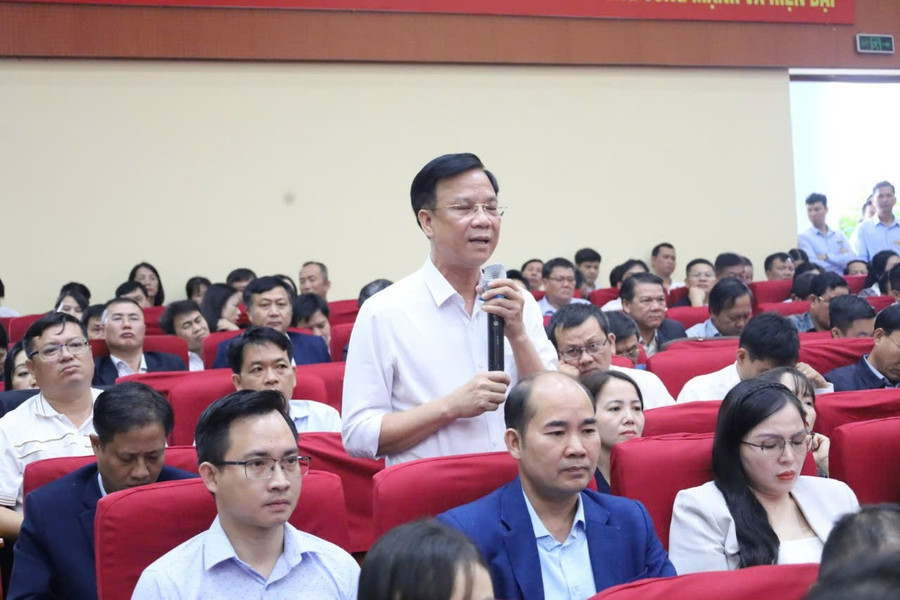
In the coming period, the Department of Vocational Education and Continuing Education will focus on improving the quality of training, standardizing, modernizing, and integrating internationally; promoting digital transformation and building a unified database; continuing to closely cooperate with businesses; expanding international cooperation; and actively advising the Ministry of Education and Training on the revised Law on Vocational Education and Training to promptly institutionalize Resolution No. 71 of the Politburo and Resolution No. 281 of the Government. These are important steps, creating a foundation for vocational education and continuing education to enter a new phase of development, meeting the requirements for high-quality human resources for the country.
Streamlining the network, improving vocational education
In his concluding remarks at the Conference, Minister Nguyen Kim Son emphasized the special nature of the event. The Minister stated that the conference was held in a very special context, marking the first time since March 2025 that the organizational and state management model for vocational education has undergone significant adjustments. Previously, the management of vocational education was handled by other ministries and agencies; however, from May 2025, this responsibility will officially be transferred to the Ministry of Education and Training and local Departments of Education and Training.

According to the Minister, this is a significant turning point, as many Departments of Education and Training now have to take on the additional task of managing hundreds of vocational training institutions. Hanoi and Ho Chi Minh City alone manage nearly half of the vocational training institutions nationwide. This is a challenging task, requiring courage, responsibility, and close cooperation between the Ministry, the Departments, and the training institutions.
It is noteworthy that the integration of management between vocational education and continuing education stems not only from organizational requirements but also from practical and objective logic. These two fields are closely intertwined and mutually supportive, providing both vocational training and meeting the needs of lifelong learning. Therefore, organizing a specialized conference like today's is necessary for all parties to frankly acknowledge and discuss the major challenges ahead.
Minister Nguyen Kim Son stated that the Ministry of Education and Training organizes many specialized conferences annually, ranging from preschool and primary education to higher education. However, this is the first time a nationwide conference has been organized specifically for vocational education and continuing education. Therefore, the organizational model and implementation methods need further adjustment for greater effectiveness.
“We had over 500 delegates, including leaders from departments, schools, and grassroots management units, attending. The conference was divided into two halls for everyone to listen, but the number of opinions exchanged was still modest. In the coming years, we must find ways to organize the conference to have more discussions and more in-depth thematic sessions on specific issues,” Minister Nguyen Kim Son emphasized.
Referring directly to the immediate key task, the Minister requested a clearer policy for the college system during the restructuring period. Along with that, the Ministry is building a comprehensive project to reorganize the entire vocational school network according to the principles of streamlining focal points, strong decentralization to localities and focusing on key investments.
"Certainly, the trend will be to transfer more of the functions and programs of vocational education and training institutions to local authorities for management. Some units will still be managed by ministries and sectors, but generally, decentralization and streamlining to concentrate investment resources will be the inevitable direction," the Minister affirmed.
Among vocational education and training (VET) institutions, many are strong, but there are also many scattered organizations, leading to difficulties in management, scattered investment, and low efficiency. Therefore, streamlining the network and concentrating resources to build a few key, high-quality institutions is the way to upgrade the VET system and better meet the human resource training requirements of the new era.
“Today’s conference is just the beginning of a new organizational cycle of vocational education and continuing education. Major issues such as restructuring the network, building a vocational high school model or developing a learning society need to continue to be discussed more deeply in the upcoming conferences. I believe that with a receptive attitude, a spirit of innovation and the support of localities, vocational education and continuing education will have a breakthrough development, becoming a solid pillar in the national education system,” Minister Nguyen Kim Son sent a message to the entire conference.
Source: https://giaoducthoidai.vn/dinh-vi-vai-tro-cua-giao-duc-nghe-nghiep-trong-chen-luoc-nhan-luc-quoc-gia-post753752.html








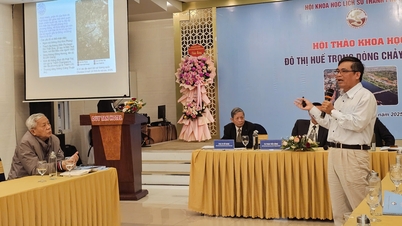



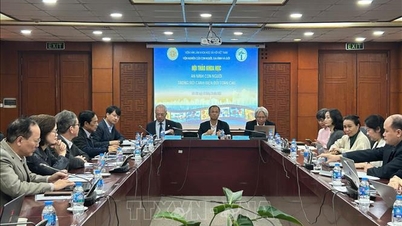

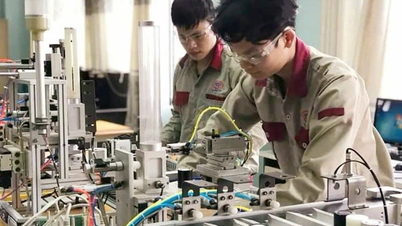
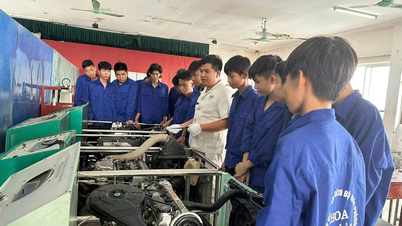


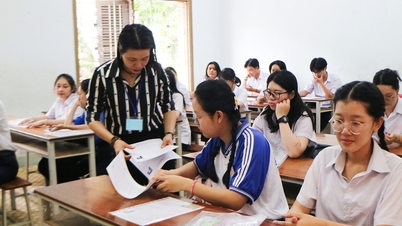

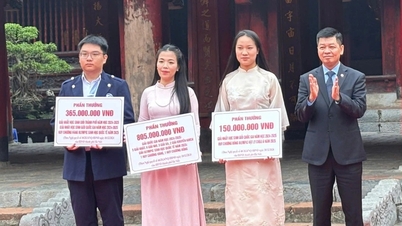


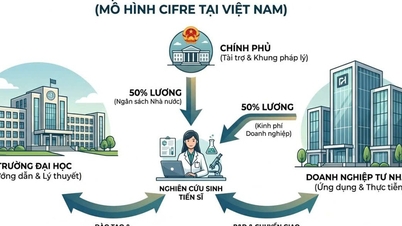

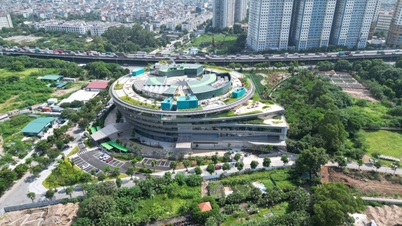





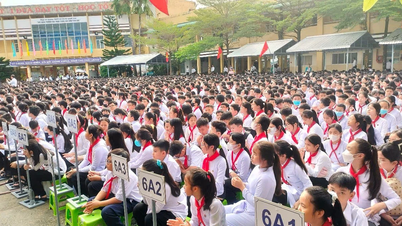
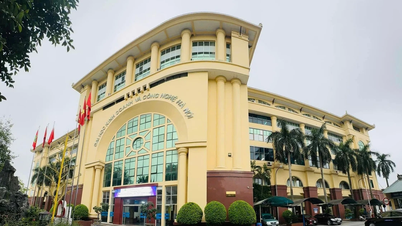
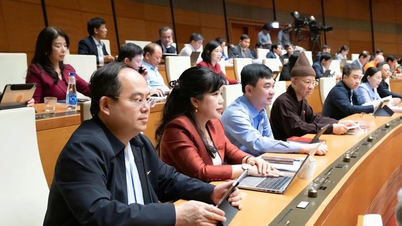
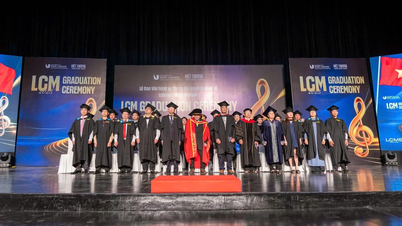
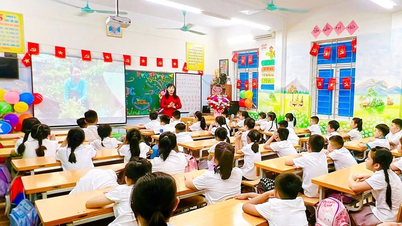
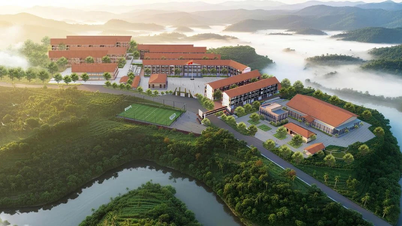








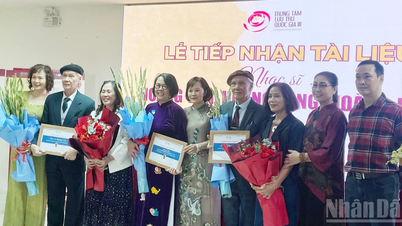







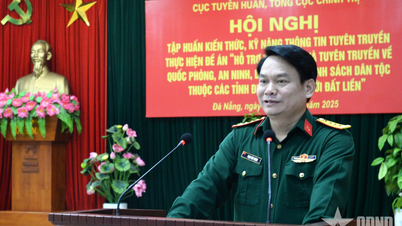

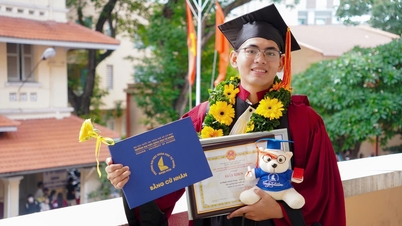
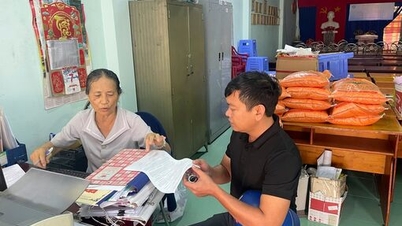

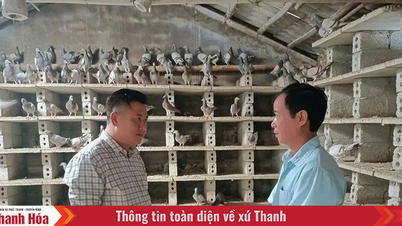






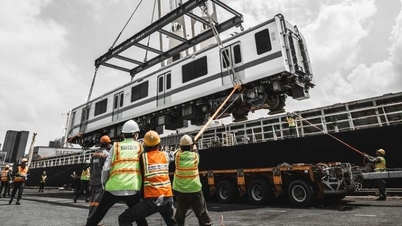









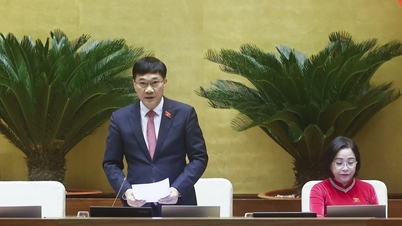
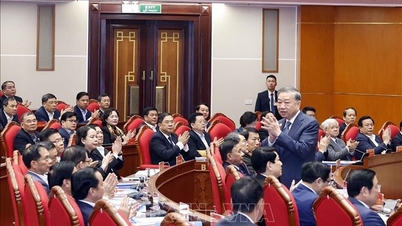
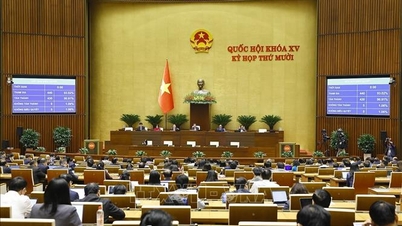

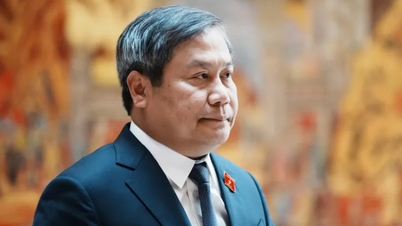
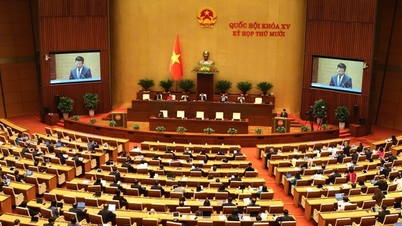


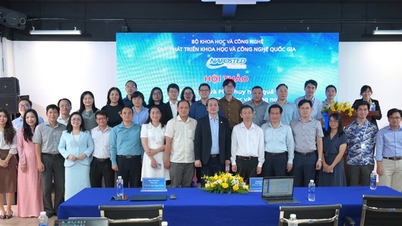
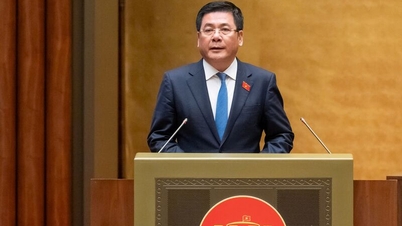

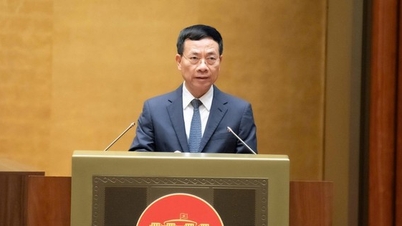






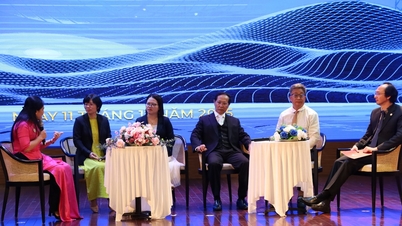

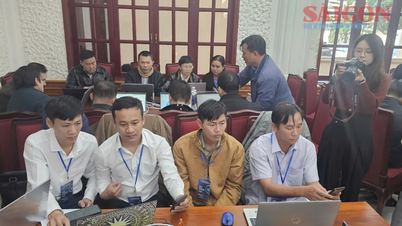

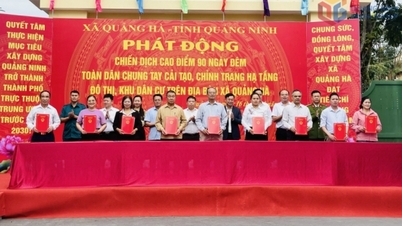

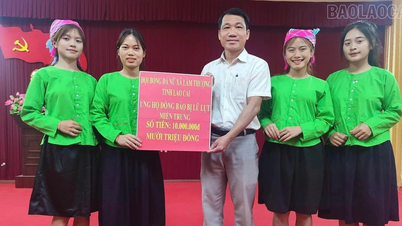


















Comment (0)